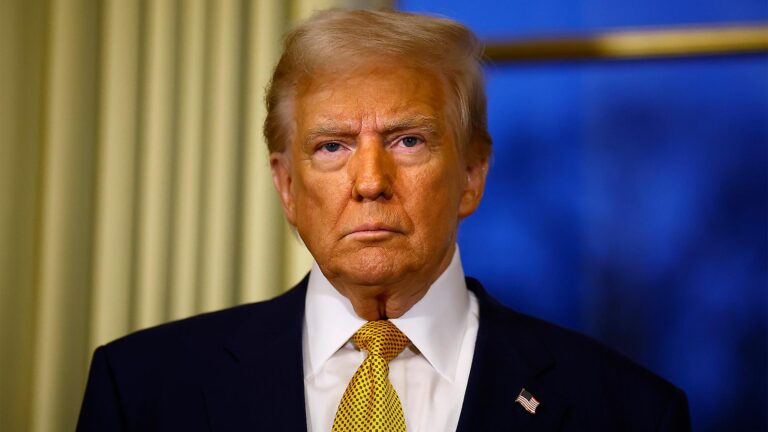Former President Donald Trump has returned from the G7 summit a day ahead of schedule to address escalating tensions surrounding the Iran crisis. His unexpected early departure underscores the urgency of the situation, as global leaders continue to grapple with the complex geopolitical challenges posed by Tehran’s recent actions. This move highlights the administration’s prioritization of national security concerns amid a rapidly evolving international landscape.
Trump Cuts G7 Trip Short to Address Escalating Tensions with Iran
President Trump has unexpectedly curtailed his G7 summit attendance, cutting the trip short by a day to directly manage mounting tensions with Iran. This high-stakes decision comes amid escalating confrontations in the Persian Gulf, where increased military posturing and recent attacks have raised alarms internationally. White House officials emphasize the administration’s commitment to de-escalation, signaling a shift to prioritize regional stability over diplomatic appearances in Europe.
- Emergency briefings: Trump convened multiple security meetings upon arrival back in Washington.
- Diplomatic outreach: Efforts intensified to engage with Middle Eastern allies and partners.
- Military readiness: The Pentagon placed additional forces on heightened alert status.
| Event | Date | Status |
|---|---|---|
| G7 Summit | June 10-12 | Cut short |
| US-Iran Tensions Rise | Since June 9 | Ongoing |
| US Military Alert | June 11 | Active |
The President’s early return highlights the gravity with which his administration views the Iranian situation, underscoring a strategic pivot to confront potential threats directly. Government insiders hint at forthcoming announcements aimed at intensifying pressure on Tehran, while simultaneously exploring avenues for dialogue. Observers remain cautious, considering how swiftly the geopolitical landscape in the region might evolve in the coming days.
Analyzing the Impact of Early Departure on Diplomatic Relations and Global Stability
President Trump’s decision to cut short his participation at the G7 summit raises critical questions about the signals it sends to global allies and adversaries alike. While the urgency of the Iran crisis justifies focused attention, this abrupt departure may be perceived as a diplomatic slight, potentially undermining the unity displayed during high-level international discussions. Such an early exit, especially amid ongoing talks on shared economic and security challenges, risks fracturing the collaborative spirit that events like the G7 are designed to cultivate.
Experts underscore several potential repercussions of this move:
- Strained Alliances: Allies may interpret the departure as prioritizing unilateral action over multilateral consensus.
- Reduced Bargaining Power: Missing critical closed-door negotiations could limit the U.S. influence on collective agreements.
- Heightened Global Uncertainty: Signals of discord among leading nations can embolden adversarial actors and destabilize diplomatic balances.
| Potential Impact | Description | Short-term Effect | |||||||||||||
|---|---|---|---|---|---|---|---|---|---|---|---|---|---|---|---|
| Diplomatic Trust | Perception of disengagement among partners | Erosion of confidence | |||||||||||||
| Crisis Management | Focused attention on Iran situation | Accelerated U.S. response | |||||||||||||
| Strategic Recommendations for U.S. Policy to Navigate the Iran Crisis Effectively
Prioritizing diplomatic engagement remains imperative as tensions with Iran escalate. The U.S. must leverage existing alliances in the Middle East and beyond, involving European and regional partners in a concerted effort to reopen dialogue channels. This includes backing backchannels that facilitate discreet communication and investing in confidence-building measures to prevent miscalculations. An approach blending firm deterrence with strategic diplomacy can reduce the risk of unintended conflict and foster conditions for a sustainable agreement. Complementing diplomacy, Washington should consider enhancing economic pressure selectively without undermining humanitarian exemptions. A multi-tiered strategy could include:
Final ThoughtsAs the situation with Iran continues to unfold, President Trump’s decision to cut short his G7 summit attendance underscores the administration’s prioritization of national security concerns. With tensions escalating, all eyes remain on Washington as officials seek to navigate the delicate path toward de-escalation. Further developments are expected in the coming days, as the White House signals its intent to engage directly with the crisis. |




